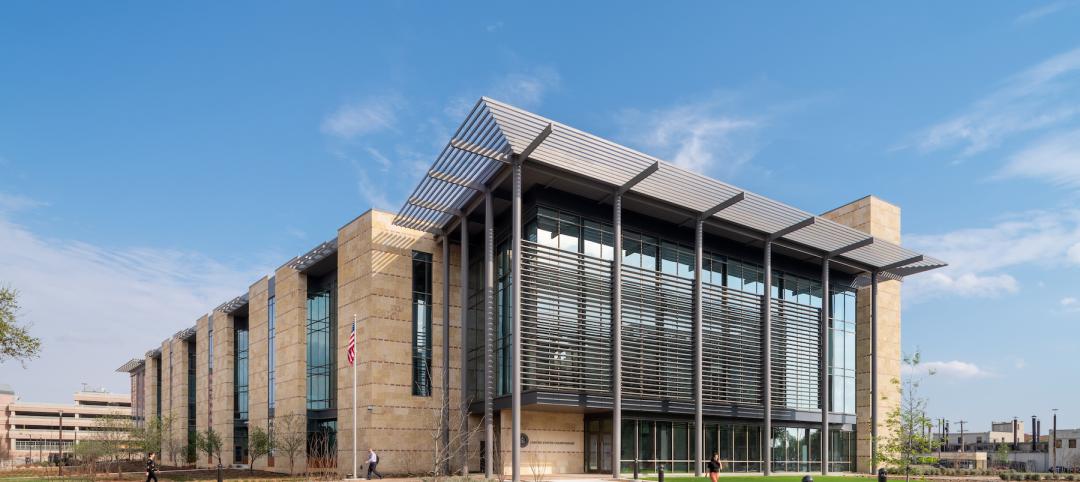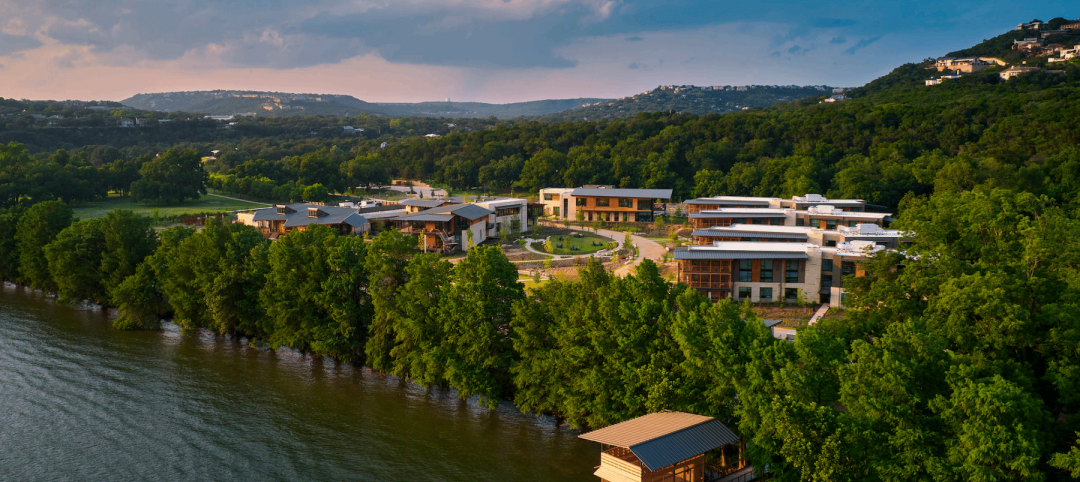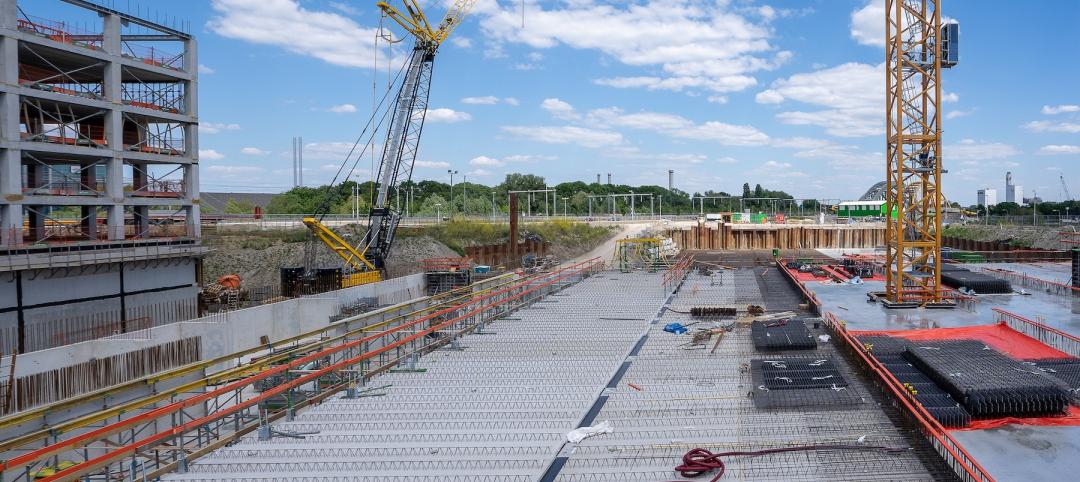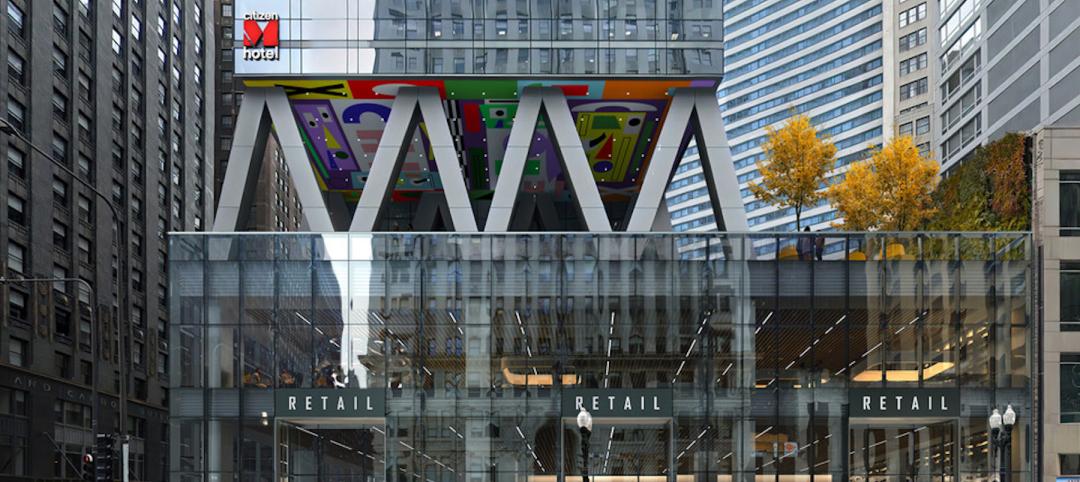Environmentally-sustainable, or “Green,” buildings continue to be firmly on the agenda for real estate owners, developers and corporate owner-occupants. Almost all respondents to the Turner 2010 Green Building Market Barometer expect to incorporate at least some Green features in their next construction project. The potential to reduce energy and operating expenses are the most common drivers for building Green, although many companies are also focused on a broader set of benefits such as increased health and well-being of occupants and the positive impact on brand and corporate reputation. Yet, concerns persist over perceived higher construction costs and the length of the payback period. In addition, respondents continue to look closely at the cost and perceived difficulty of LEED certification.
These are some of the key findings from The Turner Construction Company 2010 Green Building Market Barometer, which is the fifth assessment since 2004 of perceptions about sustainable construction. The 2010 survey gathered the views on Green buildings of 681 executives from a broad range of organizations involved with real estate, including real estate owners, developers and corporate space users, as well as architectural, engineering and construction firms.
The survey polled the participants on the likelihood of undertaking construction or renovation projects; the degree to which companies incorporate Green building features; how companies decide whether to incorporate Green features; and the role of the LEED Green Building Rating system. In addition, for the first time, the survey asked about the extent of commitment to sustainable practices, in general, across organizations.
Key Findings:
Many Companies Expect to Undertake Construction or Renovation Projects
- Among real estate owners, developers, and corporate owner-occupants, 46% of executives said it was extremely or very likely that they would undertake new construction over the next 12 months, while 58% anticipated undertaking a renovation project.
Most Anticipate Incorporating Green Features
- Almost 90% of those executives said it was extremely or very likely that they would incorporate energy efficiency improvements in their new construction or renovation project, while roughly 60% expected to incorporate improvements to water efficiency, indoor environmental quality, and Green materials.
Financial Considerations Most important
- The factors most often rated as extremely or very important when companies decide whether to incorporate Green features were energy efficiency (88%) and ongoing operations and maintenance costs (86%).
- Many companies also considered non-financial factors to be extremely or very important in their decisions to incorporate Green features such as indoor air quality (72%), health and well-being of occupants (72%), and the impact on brand/reputation (67%).
- A payback period of longer than five years for Green features was considered acceptable by 45% % of executives.
Long Payback Period and Higher Construction Costs Pose Obstacles
- Despite the fact that almost half the executives were willing to accept a payback period of longer than five years, roughly two thirds of executives considered the perceived length of the payback period to be an extremely or very significant obstacle to incorporating Green features.
- Roughly two thirds of executives also considered higher construction costs to be an important obstacle to the development of additional Green buildings.
- Half of the executives believed that Green buildings have higher operating and maintenance costs, which they identified as another extremely or very significant obstacle to Green construction.
Views of LEED Certification
- Fifty-three percent of the executives thought it was extremely or very likely that their companies would seek LEED certification if constructing a Green building.
- Executives from real estate owners and corporations with portfolios of one million square feet or more were more likely to seek LEED certification, with 64% saying it was extremely or very likely.
Broad Commitment to Sustainable Practices
- Ninety percent of executives said their companies were at least somewhat committed to following environmentally sustainable practices in areas beyond their real estate portfolios, including 56% of executives who said they were extremely or very committed.
- The reasons most often cited as extremely or very important for companies to commit to following sustainable practices were two financial factors—cost savings (64%) and customer requirements (59%)—and two non-financial factors—impact on brand/reputation (64%) and the belief that “it’s the right thing to do” (63%).
Almost all executives continue to consider incorporating Green features when they undertake a construction or renovation project. Energy efficiency measures were the features that executives would most frequently incorporate in their projects. Investments in improving energy efficiency in their buildings result in substantial savings through lower energy costs and reduced operations and maintenance costs. In addition, most executives would also include Green building features to improve water efficiency and indoor air quality and would employ the use of green materials in their projects. These Green building features provide a wide array of additional benefits that include more satisfied employees, improved health and well-being of occupants, and the positive impact on a company’s corporate brand and reputation.
Despite Economic Conditions, Many Owners Planning to Build
Turner’s 2010 Green Building Survey was conducted in an environment of continuing weakness in the economy, following the financial crisis and economic downturn that began in 2008. Despite these market conditions, when asked about their likelihood to undertake new construction or renovation projects over the next 12 months, many executives who worked for real estate owners, developers, or corporate owner-occupants indicated that they expected to do so. Among these executives, 46% thought it was extremely or very likely that their company would undertake new construction over the coming year, while 58% thought it was likely they would undertake a renovation project. Real estate owners and corporate owner-occupants with real estate portfolios of one million square feet or more were even more likely to anticipate undertaking projects over the next 12 months, with 52% saying they were extremely or very likely to undertake new construction and 73% saying the same about renovation projects.
Related Stories
Justice Facilities | Oct 17, 2022
San Antonio’s new courthouse aims to provide safety and security while also welcoming the public
The San Antonio Federal Courthouse, which opened earlier this year, replaces a courthouse that had been constructed as a pavilion for the 1968 World’s Fair.
Market Data | Oct 14, 2022
ABC’s Construction Backlog Indicator Jumps in September; Contractor Confidence Remains Steady
Associated Builders and Contractors reports today that its Construction Backlog Indicator increased to 9.0 months in September, according to an ABC member survey conducted Sept. 20 to Oct. 5.
| Oct 13, 2022
Boston’s proposed net-zero emissions code has developers concerned
Developers have raised serious concerns over a proposed new energy code by the City of Boston that would require newly constructed buildings over 20,000 sf to immediately hit net-zero emissions goals.
Education Facilities | Oct 13, 2022
A 44-acre campus serves as a professional retreat for public-school educators in Texas
A first-of-its-kind facility for public schools in Texas, the Holdsworth Center serves as a retreat for public educators, supporting reflection and dialogue.
Building Team | Oct 12, 2022
Real estate development practices worsened impact of Hurricane Ian
A century ago, the southwest Florida coast was mostly swamps and shoals, prone to frequent flooding and almost impossible to navigate by boat.
Market Data | Oct 12, 2022
ABC: Construction Input Prices Inched Down in September; Up 41% Since February 2020
Construction input prices dipped 0.1% in September compared to the previous month, according to an Associated Builders and Contractors analysis of U.S. Bureau of Labor Statistics’ Producer Price Index data released today.
Hotel Facilities | Oct 12, 2022
Global hotel chain citizenM opens its first Chicago property and its fifth of the year
citizenM, a global chain of affordable luxury hotels, has opened its first Chicago property—its fifth opening of 2022.
Building Team | Oct 11, 2022
Associated Materials® Celebrates the Company’s Rich History, Which Began 75 Years Ago with the Founding of Alside
Since its inception in 1947, Alside® has been a leader in innovation and continues this very commitment to excellence – in people, products and services.
Standards | Oct 11, 2022
Peter Templeton named new USGBC and GBCI president and CEO
The U.S. Green Building Council (USGBC) and Green Business Certification Inc. (GBCI) appointed Peter Templeton as president and CEO.
Legislation | Oct 10, 2022
Chicago’s updated building energy code provides incentives for smart HVAC, water appliances
The Chicago City Council recently passed the 2022 Chicago Energy Transformation Code that is intended to align with the city’s goal of reducing carbon emissions by 62% from 2017 levels by 2040.
















